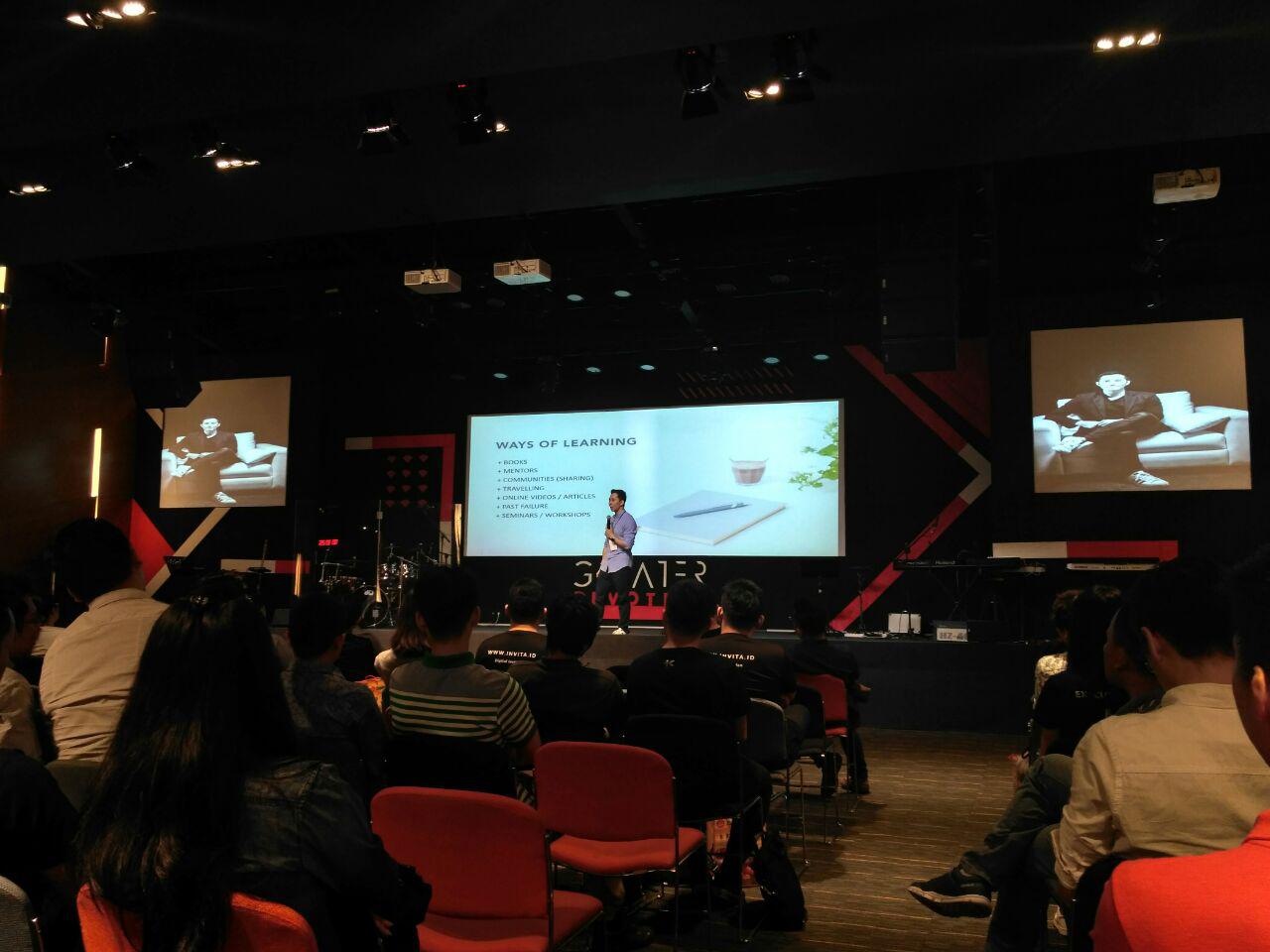How Beginner Founders Find Ideas and Adapt to Conditions
Lessons from Clapham Startupfest 2018. The idea may be the same, the execution may be different
Clapham Startupfest 2018 was held again for the third time. This episode presents more speakers in the hope that it can provide many benefits for the participants who come, either as startups, individuals or students who want to know and get involved in the startup field. One that is discussed quite a lot is about how to start a startup.
On the first day, Jourdan Kamal, the founder of MauBelajarApa, opened the session with a presentation on how important it is as individuals to keep learning, followed by a discussion with three startup founders, Wilton Halim from Mobil Kamu, Ronny Wuisan for UrbanAce, and Jourdan who shared stories about how to find ideas. and when to start.
Adaptability
The Clapham Startupfest 2018 event opened with quite an inspirational presentation from Jourdan. He told how his career journey until now has supervised MauBelajarApa and continues to strive to bring it to a better stage. There are three important points that are emphasized from Jourdan's presentation. The first is about how to learn, or learning, how to detect obsolete knowledge, or so-called unlearning, and come back to learn new things or re-learning.
These three things can help to keep learning and to keep adapting. In the midst of increasingly fierce competition, access to information that is no longer limited to being a learner who continues to learn is a must not to be run over in an increasingly fierce competition.
"So in life you have to learn how to unlearn and how to re-learn. So when knowledge changes rapidly your ability to forget old knowledge and learn new knowledge is important," says Jourdan.
One of the things that Jourdan exemplifies is the process of how he learned to market something. He said that at first Google and SEO were considered the most effective digital marketing channels, but over time this perception changed. The process of realizing something is not working properly is what is called unlearning. Then he started to learn new digital marketing techniques which eventually led him to Instagram, this thing called re-learning. This cycle should be applied by founders of startups. The process of learning and adapting.

Transforming ideas into execution
After learning about how to survive starting from a person or self founder The Clapham Startupfest 2018 series of events again brings startup founders to share their experiences about ideas and how to start executing them.
In a session This question and answer session with the founder presented three speakers, namely Mobil Kamu Founder Wilton Halim, UrbanAce Founder Ronny Wuisan, and MauBelajarApa Founder Jourdan Kamal. The three discussed how to find ideas and carry out executions.
The diverse backgrounds of the speakers provide an interesting perspective. Wilton, for example, started his career in Australia and brought Mobilkamu to Indonesia in April 2016. For several months he has been trying to find the real problem he is trying to solve, until now he is helping people to buy cars with claims that are easier and cheaper.
Meanwhile, Ronny Wuisan has experience in property sales. That experience brought him to develop UrbanAce. Meanwhile, Jourdan Kamal, was inspired by his sister who wanted to become a teacher and was promoted online. Based on the understanding that online workshops will pay off, he eventually founded MauBelajarApa.
All three go through different processes, especially in finding ideas. One of the points from the presentations of the speakers was the importance of finding and managing ideas, especially before proceeding to execution. For Ronny, ideas are usually born from personal experience. By experiencing the problem yourself, ideas can usually be more valid.
While for Wilton, finding an idea (or knowing the problem) is easy, the hardest thing is actually making sure that it is a real problem or just a problem. noise.
"Actually the hardest thing is knowing, what is it problem [really]?," Wilton said.
According to him, noise in the identification of ideas it can lead to bias and can affect execution if rushed.
Meanwhile, Jourdan has his own way of distinguishing ideas with biases that are often found. For Jourdan, writing down ideas and letting them sit for a while can separate ideas from bias.
"Usually I don't execute the idea right away. I wait three months. [...] if the idea is still there piece in my and passion it [still exists] after three months of my execution," explained Jourdan.
One of the safest ways to avoid the futility of trying and executing an innovation is to convince yourself and keep trying to sort out which ones are the real problems, which ones are likely, and which ideas are most likely to be executed.
- Disclosure: DailySocial is the media partner of Clapham Startupfest 2018
Sign up for our
newsletter
